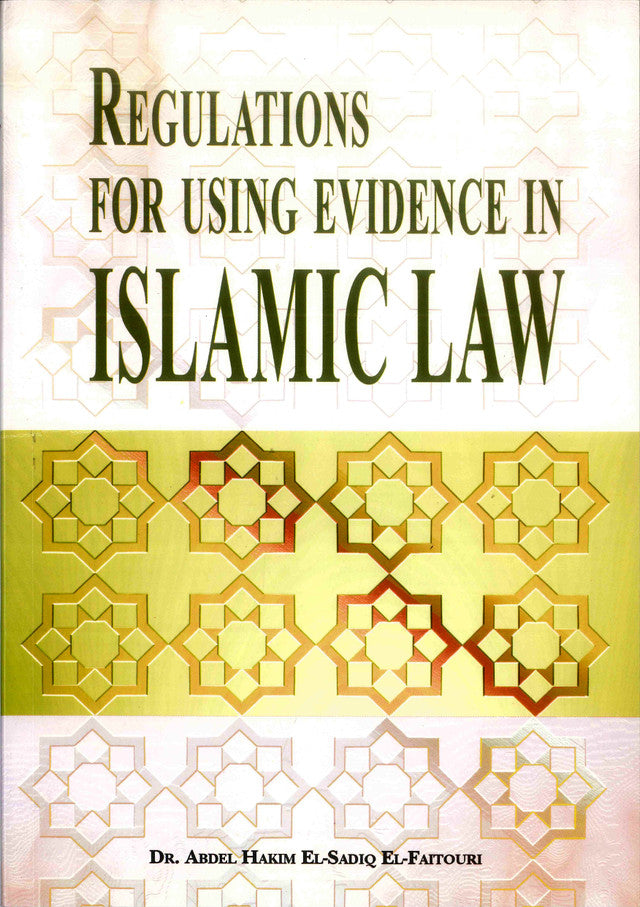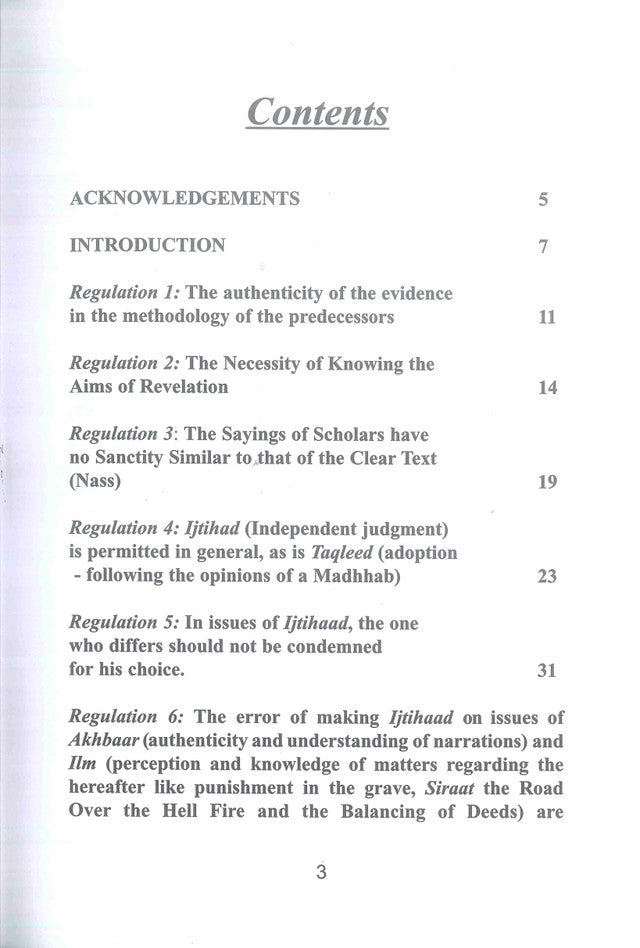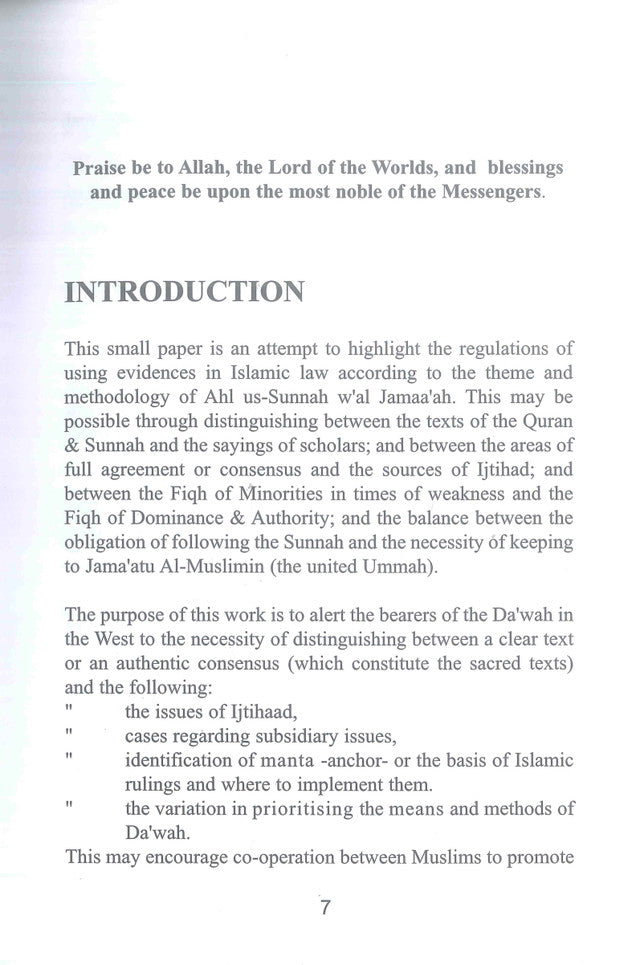Regulations for Using Evidence in Islamic Law | Dr. Abdel Hakim El-Sadiq El-Faitouri, Ph.D.
Regulations for Using Evidence in Islamic Law | Dr. Abdel Hakim El-Sadiq El-Faitouri, Ph.D.
Publisher:
Al Firdous LTD
Author:
Dr. Abdel Hakim El-Sadiq El-Faitouri, Ph.D.
Language:
English
Binding:
Soft Cover
Pages: 53
Size: A5 |5.8 x 8.3 in| 14.8x 21 cm
Couldn't load pickup availability



Collapsible content
Description of Book
Regulations for Using Evidence in Islamic Law | Dr. Abdel Hakim El-Sadiq El-Faitouri, Ph.D.
Regulations for Using Evidence in Islamic Law" by Dr. Abdel Hakim El-Sadiq El-Faitouri, Ph.D., explores the intricate principles and methodologies surrounding the use of evidence in Islamic jurisprudence (fiqh). The work delves into how Islamic legal scholars interpret and apply various forms of evidence, such as testimony, documentation, oaths, and physical evidence, in determining legal rulings. The book also highlights the balance between traditional Islamic legal sources—like the Qur'an and Hadith—and modern methods of evidence assessment, reflecting the dynamic nature of Islamic law. Dr. El-Faitouri examines how these regulations ensure justice, fairness, and the protection of individual rights while maintaining adherence to Islamic ethical principles. Through a thorough analysis, the work offers valuable insights into the complex relationship between evidence and law within the framework of Islamic jurisprudence
Publisher
Al Firdous LTD
Author
- Dr. Abdel Hakim El-Sadiq El-Faitouri, Ph.D.
Sample Pages - Content
Praise be to Allah, the Lord of the Worlds, and blessings and peace be upon the most noble of the Messengers. INTRODUCTION This small paper is an attempt to highlight the regulations of using evidences in Islamic law according to the theme and methodology of Ahl us-Sunnah w'al Jamaa'ah. This may be possible through distinguishing between the texts of the Quran & Sunnah and the sayings of scholars; and between the areas of full agreement or consensus and the sources of Ijtihad; and between the Fiqh of Minorities in times of weakness and the Fiqh of Dominance & Authority; and the balance between the obligation of following the Sunnah and the necessity of keeping to Jama'atu Al-Muslimin (the united Ummah). The purpose of this work is to alert the bearers of the Da'wah in the West to the necessity of distinguishing between a clear text or an authentic consensus (which constitute the sacred texts) and the following: 11 11 11 11 the issues of Ijtihaad, cases regarding subsidiary issues, identification of manta -anchor- or the basis of Islamic rulings and where to implement them. the variation in prioritising the means and methods of Da'wah. This may encourage co-operation between Muslims to promote 7
Who is Dr. Abdel Hakim El-Sadiq El-Faitouri, Ph.D.?
Dr. Abdel Hakim El-Sadiq El-Faitouri is a scholar and academic known for his contributions in the fields of Islamic studies, history, and social sciences. With a Ph.D. in his area of expertise, Dr. El-Faitouri has conducted significant research and written extensively on topics related to Islamic thought, culture, and history. He is recognized for his deep understanding of the socio-political dynamics of the Muslim world, particularly in relation to the contemporary issues facing Muslim communities.



